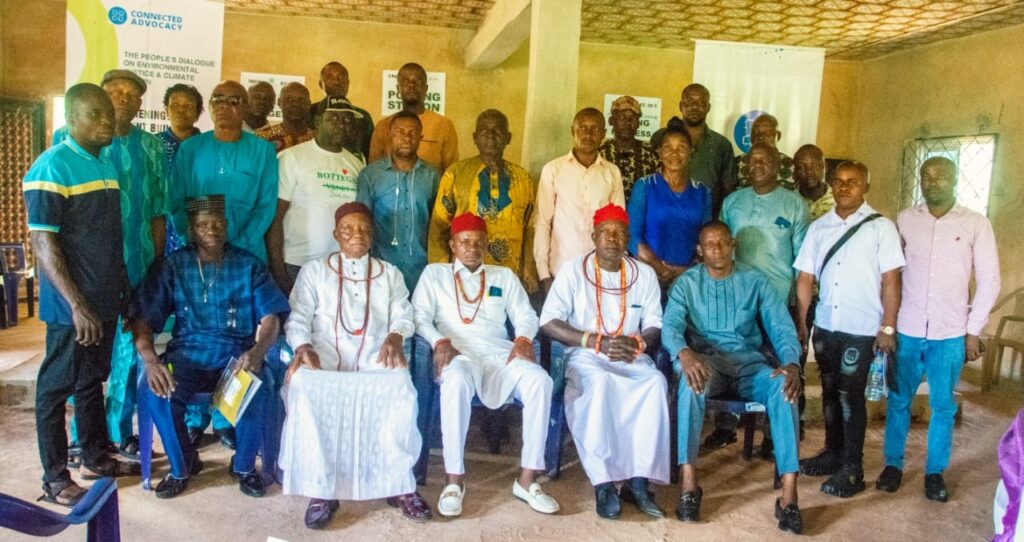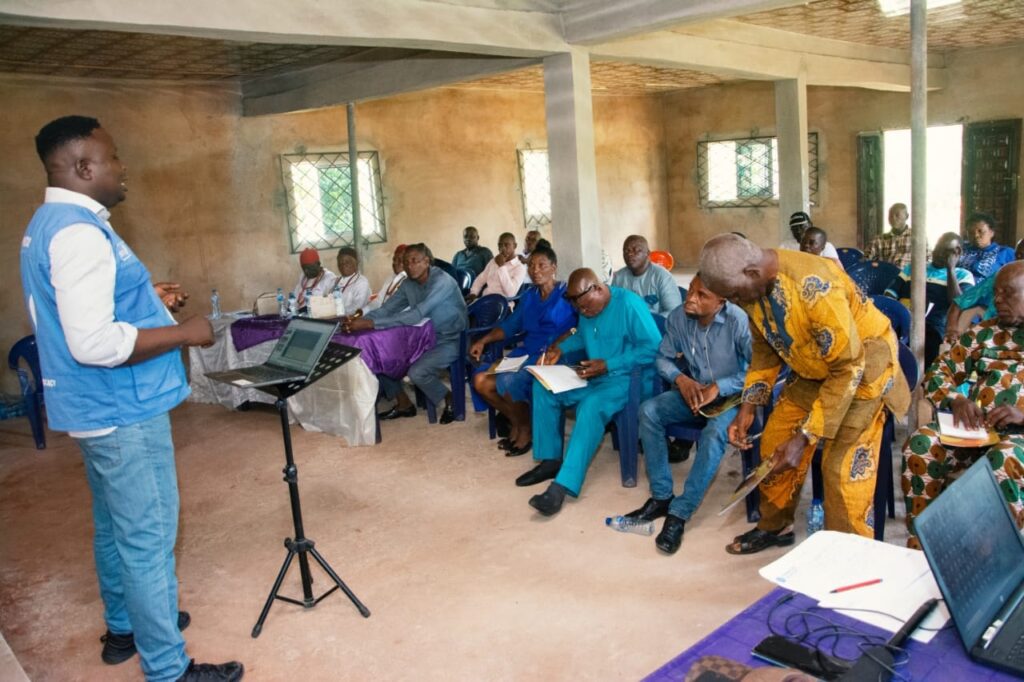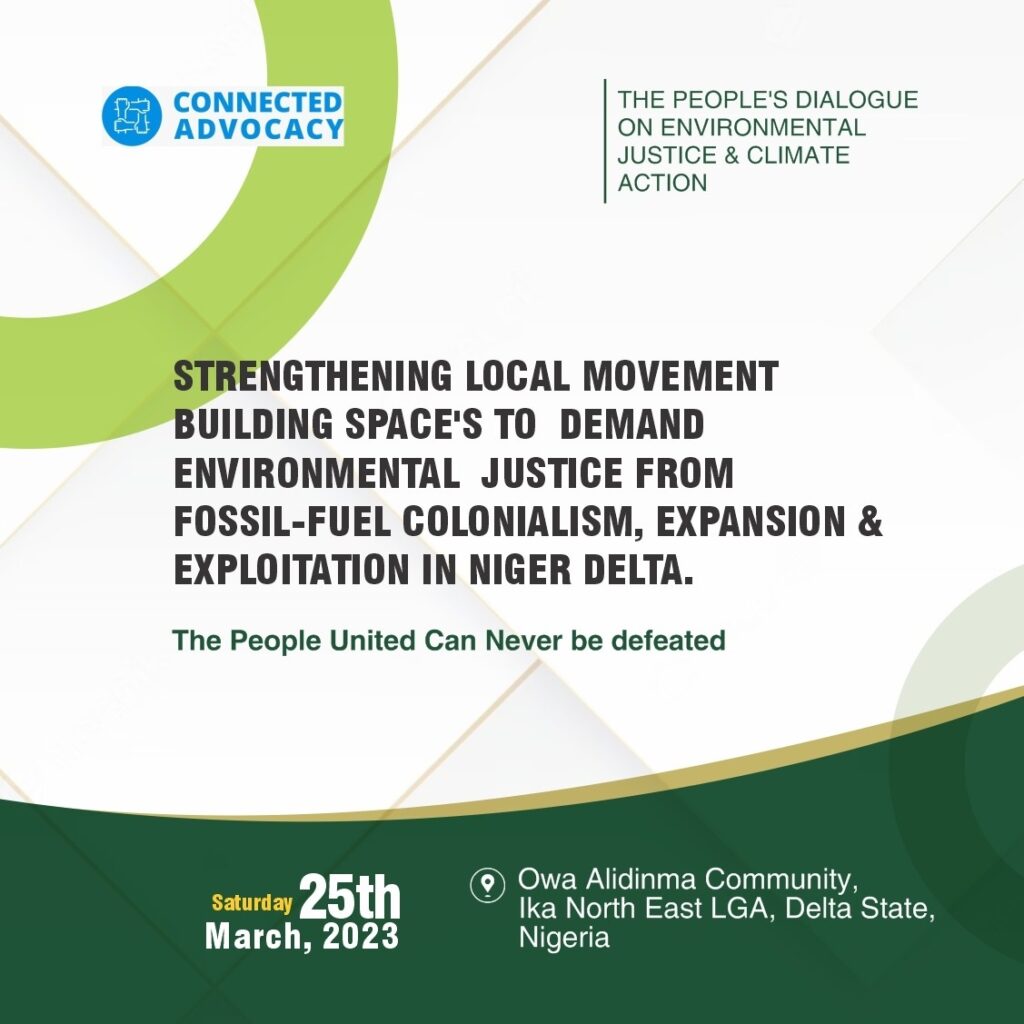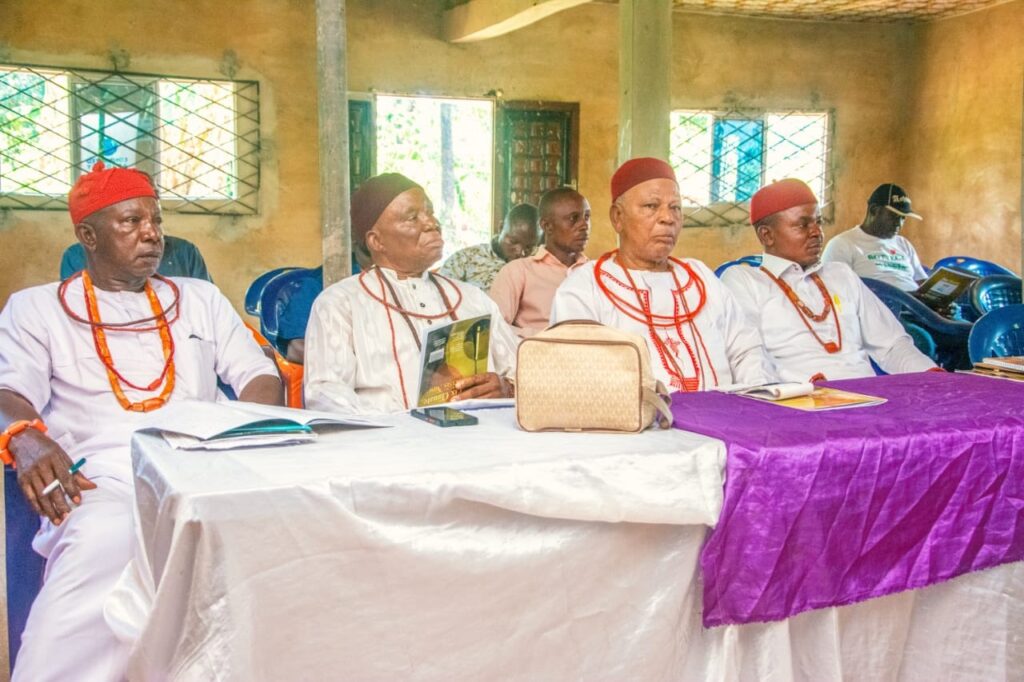Strengthening Local Movement Building Space’s To Demand Environmental Justice From Fossil-Fuel Colonialism , Expansion And Exploitation In Niger Delta

Date: March 25, 2023
Time: 9:40 AM
Location: Ekuku-Agbor Owa/Alidinma community, Agbor Delta state
Attendees: Connected Advocacy representatives, traditional rulers, oil host community leaders, women leaders, and youth leaders
Meeting Agenda: The People’s Dialogue for Environmental Justice and Climate Action: Strengthening Local Movements and Building Spaces to Demand Environmental Justice from Fossil-Fuel Colonialism, Expansion, and Exploitation in the Niger Delta
Meeting Minutes:
The People’s Dialogue for Environmental Justice and Climate Action was held on March 25, 2023, at the Ekuku-Agbor Owa/Alidinma community in Agbor Delta state. The one-day program was organized by Connected Advocacy, a non-governmental organization located in Benin City, Edo State, to train local and community people on strengthening local movements and building spaces to demand environmental justice.
The program started at 9:51 AM with an opening prayer said by Comr. Ozour Ezekiel from Obi-Anyima. Thereafter, all participants were asked to introduce themselves, and an overview of the training rules and objectives was given by the Director of Connected Advocacy, Prince Israel Orekha.

The program featured training sessions on environmental monitoring, smart advocacy tools for environmental justice, and how to build a non-violent environmental justice movement. The training aimed to enable local communities to advocate for and demand freedom from pollution, environmental degradation, and exploitation.
The impact of oil exploration in the communities was discussed during the meeting, which included community crises, environmental degradation, diversion of monetary benefits, intimidation from the traditional rulers, non-compliance with environmental multilateral agreements, climate change issues, pollution, denial of social responsibility, excessive flooding, divestment plans by the IOC from the region, and an increase in the high cost of living due to poor agricultural produce.
The imperative of smart advocacy tools for environmental justice was stressed, which are evidence-based collective efforts or strategies targeting decision-makers and polluters. The training focused on influencing the actions, programs, and policies of the IOCs and governments toward environmentally friendly interventions, fulfilling the agreement for the protection of the earth, people, and planets.
The next session was taken by Cadmus Atake-Enade, who spoke on environmental monitoring tools for mitigating the danger of fossil-fuel (oil and gas) extraction in the local communities. He encouraged participants to monitor their environment through air, water, and soil pollution, and biodiversity issues. He listed tools for monitoring the physical environment, such as pens, pencils, cameras, and whistles, and emphasized the need to document the findings or monitor the evidence.
The meeting concluded with the reconciliation between the Traditional Community Council and Host Community Network operating in the community, promoting a peaceful and organized strategy for advocacy, campaigning and participation to build a well-structured grassroots movement of impacted communities. This historic event will enhance local people’s voices to mobilize for action to end fossil-fuel colonialism, expansion, and exploitation.

